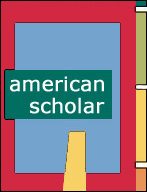English 5508 - Teaching Composition
Collaborative Critique
This was an assignment I completed with one of my peers. I eliminated from the text the name of that peer, the name of the T.A. that we critiqued, and the syllabus that we used from that class.
Jason Hudson and D. R-- M--
Dr. T--
English 5505
11 November 2002
Teaching Assessment of English 101
On September 24, 2002, we attended Mrs. H--'s English 101 class. The atmosphere was pleasant, and the students seemed to enjoy the teacher.
Class started promptly at 9:30 with a five-minute introduction on the use of irony in writing. For the sake of clarity, she brought a dictionary to class and defined some of the terms she was using. The students seemed to appreciate the time spent defining these new concepts and stayed attentive to her remarks. According to Muriel Harris on grammatical concepts, an instructor should never hesitate to "[provide] background information when and where it is needed" (Harris, 360). Clearly, H-- was aware that if she had not defined some terms carefully, some students would miss the point of her initial remarks. This would likely cause frustration for both H-- and her students.
After her opening remarks, H-- gave the students ten minutes to respond to a prompt from that day"s reading assignment. We noted that she took great care defining the assignment, fully explaining the task. She even wrote the assignment and page number on the board for reference. While the students wrote in their journals, H-- handed out an assignment sheet, which explained the specifics of a future compare/contrast essay.
At 9:45 the students had completed their ten-minute writing exercise. H-- asked the students to read silently the compare/contrast assignment sheet. Then, referring to the assignment calendar, she reminded the class that two assigned papers had already been due. She urged those who had not turned anything in to do so.
H--'s policy states that any late work on essays will be accepted, although a penalty of five points per day will be accrued. This seems to be a fair way of grading essays. The students in Freshman Composition are mostly coming into the university setting straight from high school. Leniency in this stage of their educational process is probably helpful since they are adjusting to a new and demanding standard.
H-- read the assignment sheet out loud and gave some details to the students on how the paper should be structured. Again, H-- used clear and concise language to deliver her intentions to the class. She told them that two stories would be chosen from a list of many, and that they would work in groups and answer specific questions given by transparency.
At 9:50, the students were in their groups. H-- chose to place them in the same groups as in previous class sessions, so that there would be a spirit of familiarity and comfort with each student's writing. H-- told them to read one of two stories; "Civil Peace" by Chinua Achebe or "The Lottery" by Shirley Jackson. The students were to analyze the story based on the questions given on transparency.
Muriel Harris would classify these stories as "concept learning literature" (347). H--'s purpose discussing grammatical concepts by using the stories is congruent with Harris' philosophy. Harris believes that "insights and strategies from concept learning literature can make the teaching of grammatical concepts efficient and effective" (347).
H-- also wanted to help her students learn how to intelligently communicate their responses to literature. William Strong believes that this type of essay assignment is designed to ensure that students can "make sense of their responses as readers and to explain certain text features such as character or theme" (Strong 84).
At the end of class, she let the students know that there would be a quiz on grammatical concepts during the following session.
After observing the class, we discussed how H-- handled her class. She was very well prepared with her dictionary already marked and knew which of the students had not turned in their previous papers. The only thing that we may have done differently was we would have interacted with the small groups a little bit more to give them some feedback. We think that she may have done so if we hadn't been there to observe.
